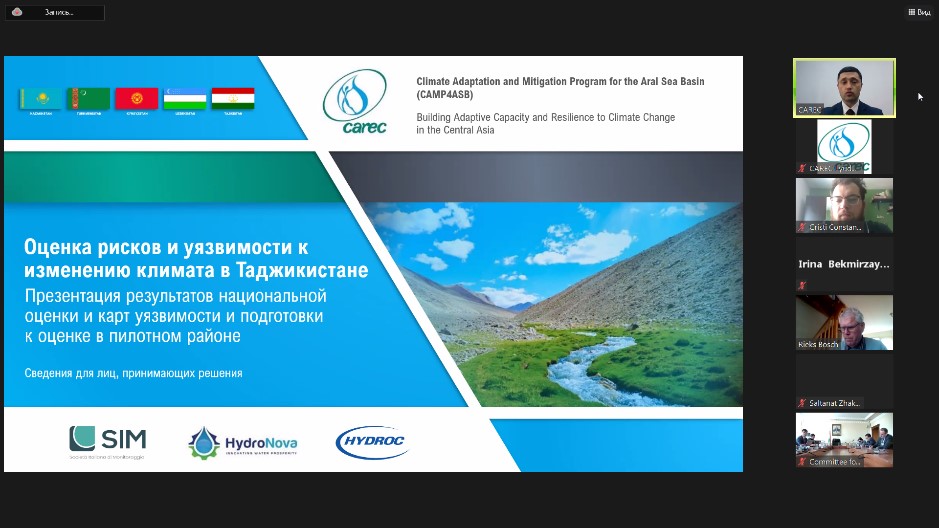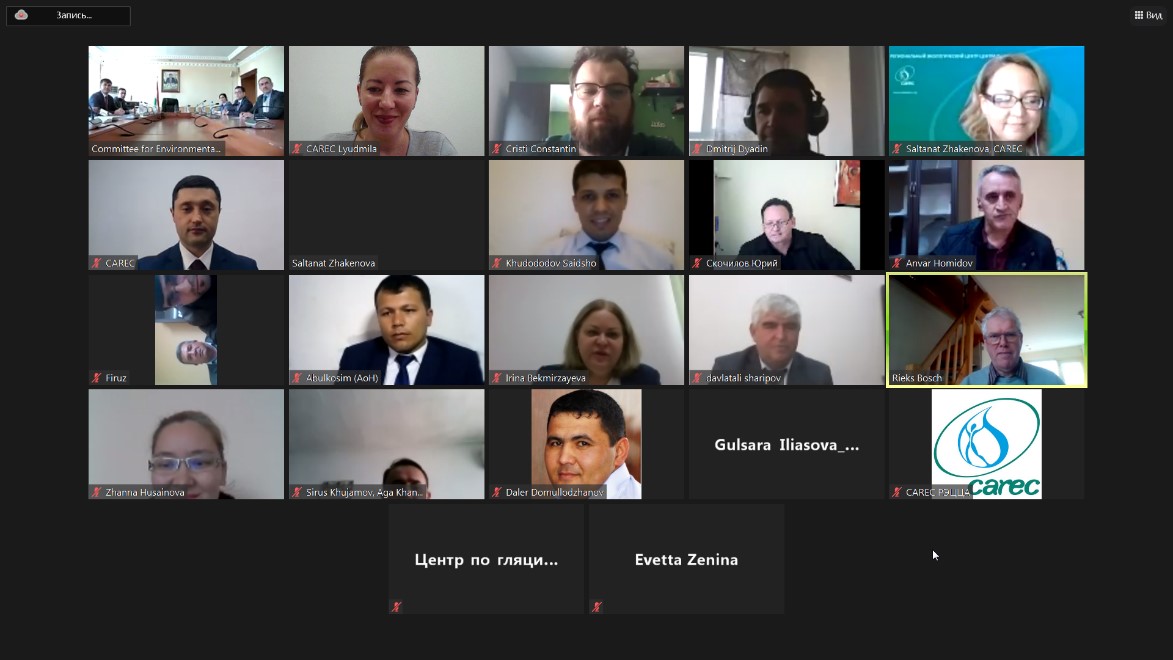
"Assessment of climate risks and vulnerability in Tajikistan: presentation of national assessment results and vulnerability maps and preparation of an assessment in the pilot area" – this is the topic of the online webinar in Dushanbe, 1 April 2020. Experts and professionals of relevant ministries and departments of Tajikistan, CAREC representatives, international consultants working in the field of climate change assessment attended the webinar. 23 participants attended the event.
International consultants of the regional project “Climate Adaptation and Mitigation Program for Aral Sea Basin” (CAMP4ASB), members of the consortium of international consulting companies SIM, Hydroc, and Hydronova assessed climate change vulnerabilities of Central Asian countries. The assessment comprises agriculture, energy, water resources, health, and climate-induced disasters.
In the welcome speech, the Executive Director of CAREC, Zafar Mahmudov, said the assessment of climate risks is based on formal analysis of the effects, likelihoods, and reactions to climate change; it includes also impacts of social constraints on adaptation options.
“Today we get acquainted with the preliminary results of the national assessment. We discuss current priorities for climate adaptation and determine further steps to conduct such an assessment at the pilot site. The next stage will be an economic assessment of costs and benefits,” said Zafar Mahmudov. He expressed the hope that the assessment’s results will contribute to the formulation of specific adaptation measures at the country level and, directly, for the pilot areas, as well as serve as an incentive for improving national legislation and development programs.
The international expert at HYDROC Rieks Bosch presented the results of the national assessment. He highlighted that the expert team analyzed the extensive data set presented in the classification maps, a basis for the government decision-makers.
The national expert Murod Ergashev stressed, 40 percent of the factors causing land degradation relate to climate change. He mentioned the negative impact of climate change on the population’s health. According to researches, outbreaks of pathogens directly depend on climate warming.
According to Rieks Bosch, preliminary results show Tajikistan will face the problem of land degradation which negatively affects all sectors of the country’s economy. An increase in extreme precipitation will require adapted management of rivers and reservoirs. The expert suggested five steps for adaptation based on the chain of consequences of climate change at the local, regional and national levels.
The participants got acquainted with the analysis of climatic risks and vulnerabilities in Zerafshan river basin, the pilot area. The analysis’s preliminary results revealed the major risks – an increase in temperatures and precipitations. The experts suggested adaptation measures based on these risks such as the efficient use of water resources and soil protection to expand vegetation cover, etc.
The assessment will help Tajikistan determine priorities for adaptation measures, develop adaptation planning, and discuss and agree on the procedure for assessing climate risks and vulnerability at the pilot site of the country.
The assessment’s results will be posted in an interactive format at the Central Asian Climate Information Platform (CACIP).
The National assessment of risks and vulnerabilities was conducted by CAREC under CAMP4ASB to support countries in planning and implementation of adaptation measures.

The event was organized by the Regional Environmental Center for Central Asia (CAREC) within the framework of the regional project of the World Bank / EC IFAS “Climate Adaptation and Mitigation Program for Aral Sea Basin" (CAMP4ASB).
